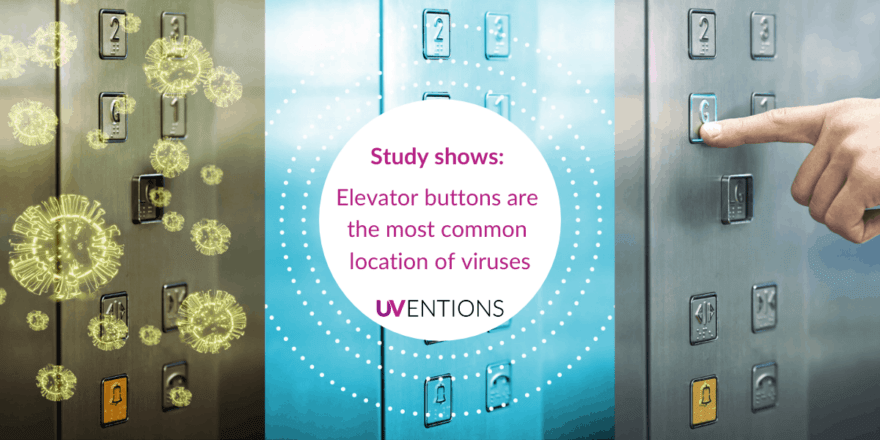Norovirus study: elevator buttons are the most common place to find viruses
Every year on 05.05. is the World Day of Hand Hygiene. This world day was established in 2005 by the World Health Organization (WHO).
The date, 5.5., was not chosen by coincidence. The two fives in the date symbolize two of the five human fingers.
The goal is to draw attention to the importance of good hand hygiene to protect health – and not only during a Corona pandemic.
A study by six different laboratories and institutions in Spain also shows how necessary this is. They evaluated the surfaces on which the highly contagious noroviruses, which cause gastrointestinal illnesses, are frequently found.
The aim of the study was to analyze the level of contamination in closed or semi-closed facilities such as nursing homes, schools, kindergartens, youth shelters, hospitals and social health centers.
This is because our hands always come into contact with microorganisms, such as viruses and bacteria, everywhere. When we then touch our faces, these pathogens quickly enter our bodies from there via our mouths, eyes and noses and can trigger various infectious diseases.
The study examined numerous surfaces and everyday objects such as handrails, dining tables, door handles and TV remote controls, as well as elevator buttons.
Two samples were taken from each of the facilities. The first sample was taken immediately after the norovirus infections were detected, and the second sample was taken ten days later, after control measures had already been taken.
Include all areas in the disinfection routine
In the first sampling, noroviruses are only detected more frequently on the surfaces of toilet faucets (33%) and handrails (31%) than in elevator probes (22%).
While positivity in the second sampling decreased significantly compared to the first sampling in almost all areas tested, elevator probes even showed an increase in contamination (25%).
Noroviruses have an increased resistance to high chlorine concentrations, heat, cold, acid pH and organic solvents and can persist on surfaces for weeks.
Therefore, the study recommends adapting cleaning routines and methods accordingly.
With the UVPANEL from UVENTIONS, we can already provide support in the area of elevator disinfection.
Surfaces as well as air are disinfected in the same way and without manual control. The UVPANEL disinfects with UV-C rays – viruses and bacteria cannot develop any resistance to this.
But either way: regular and proper washing of hands, also take time for drying. Bacteria thrive in warm and humid environments. Moist hands transmit 1,000 times more germs than dry ones.
A summary of the study was published in the Journal of Hospital Infection.

